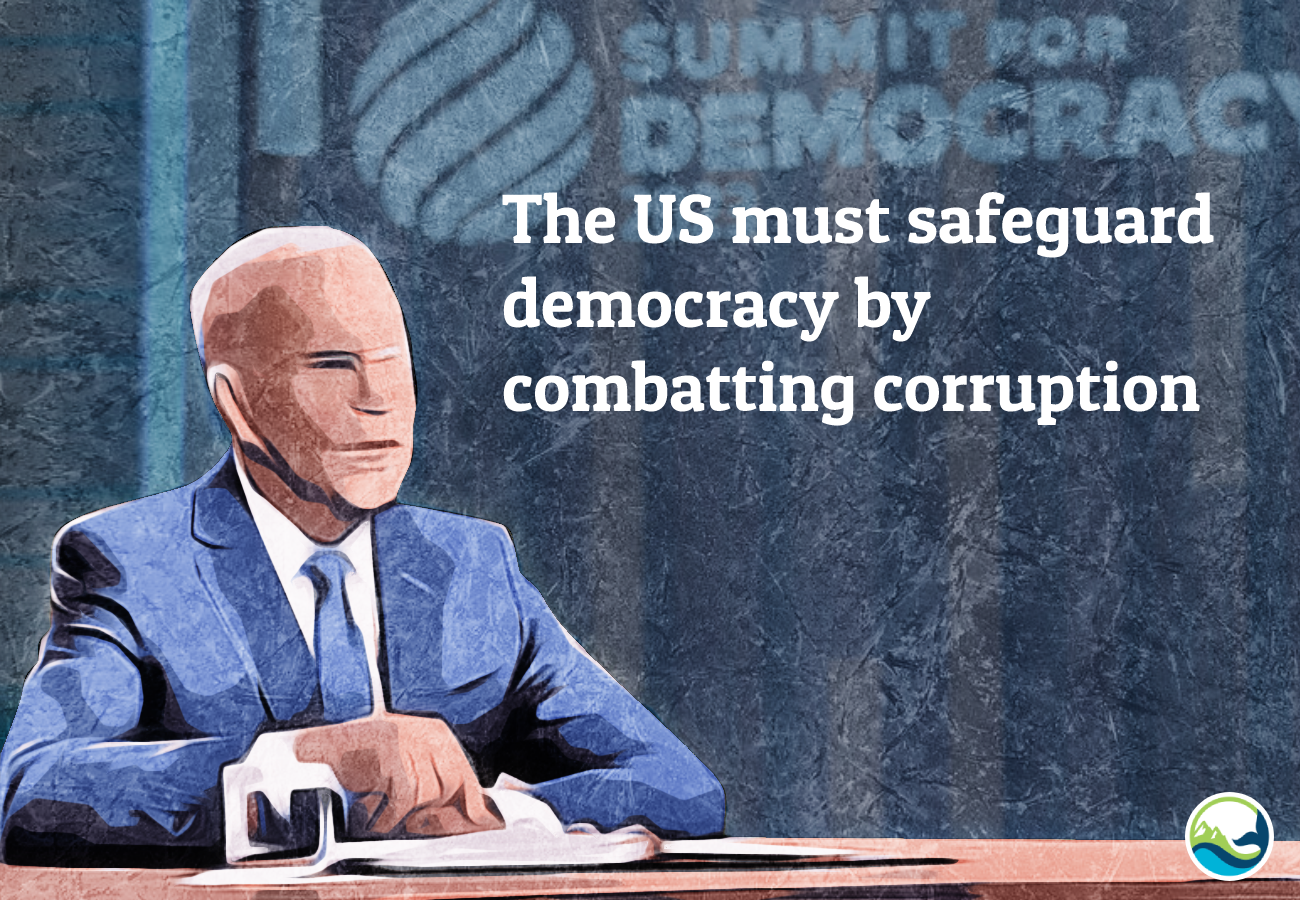
The US must safeguard democracy by combatting corruption
28 Mar 2023 ( The Hill )
As the United States and its global partners kick off the highly anticipated Summit for Democracy this week, there’s a unique window of opportunity for collaboration in combating illicit financial flows that contribute to the erosion of democracy around the world. As a leading proponent of democratic ideals, the United States must serve as a credible partner to safeguard democracy, promote global economic development and help combat corruption.
President Biden and his team started out strong during his first year in office, issuing the first-ever whole-of-government “U.S. Strategy on Countering Corruption” and boosting attention to tackling corruption as part of our diplomatic and foreign assistance efforts. At the first Summit for Democracy at the end of 2021, Treasury Secretary Janet Yellen boldly admitted that the U.S. has emerged as the easiest country to conceal ill-gotten wealth, noting “there are far too many financial shadows in America that give corruption cover.” Last year, the U.S., working with allies, made a concerted effort to find and seize the assets of Russian oligarchs.
After a strong start, though, progress has slowed in tackling the structural reforms needed to reduce our enabling role in global corruption and illicit financial flows. There are even worrying signs the U.S. might lose global credibility in this fight. Therefore, what would U.S. action to fix its dirty money problem look like?
First, the U.S. must prioritize the full implementation of the Corporate Transparency Act, the landmark anti-corruption and anti-money laundering legislation enacted in early 2021. This crucial law requires entities to file a report with the U.S. government on who ultimately owns or controls a company. So-called anonymous shell companies have been a getaway vehicle for criminals and kleptocrats to hide their stolen assets in the United States. With this law, U.S. and international law enforcement agencies have a real chance at following the flow of dirty money and stopping international criminals from endangering our communities.
Regrettably, implementation has been slow and a recent proposal from the U.S. Treasury would make it unnecessarily complicated for law enforcement agencies and financial institutions, both in the U.S. and abroad, to access this vital information. To add to the worry, the U.S. Treasury has even proposed a form for reporting entities that would, in effect, make the Corporate Transparency Act an optional exercise.
Second, the United States must also address the dirty money flowing into the massive $50 trillion U.S. real estate sector. Alarmingly, the U.S. remains the only G7 country that has yet to impose anti-money laundering requirements on real estate professionals. In a recent report, Global Financial Integrity identified more than $2.3 billion has been laundered through U.S. real estate from 2015 to 2020. The U.S. appears less than serious about supporting democracy when it allows authoritarian and kleptocratic regimes to easily park stolen funds in the U.S.
To tackle this challenge, the U.S. Treasury Department must urgently impose robust anti-money laundering requirements on real estate professionals covering both the residential and commercial sectors. By implementing strong requirements, the U.S. Treasury would show the world that the U.S. is serious about tackling dirty money.
Curbing illicit financial flows into the United States should be a top priority for the U.S. government. International criminals, such as the Russian oligarchs, human traffickers, and drug cartels, hide their money in the US financial system and endanger American families, communities and pocketbooks. For example, the flood of illicit money into our U.S. real estate market further exacerbates America’s ongoing housing crisis.
To be a credible leader and partner, the U.S. must act with urgency to clean up the dirty money flowing into our financial system.
Ian Gary is the executive director of the Financial Accountability and Corporate Transparency (FACT) Coalition.
SEE THE ORIGINAL ARTICLE


